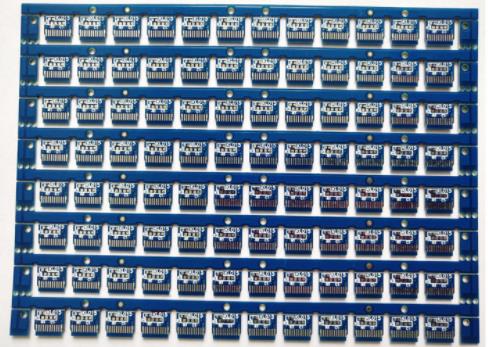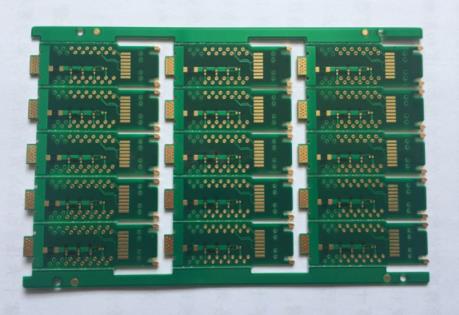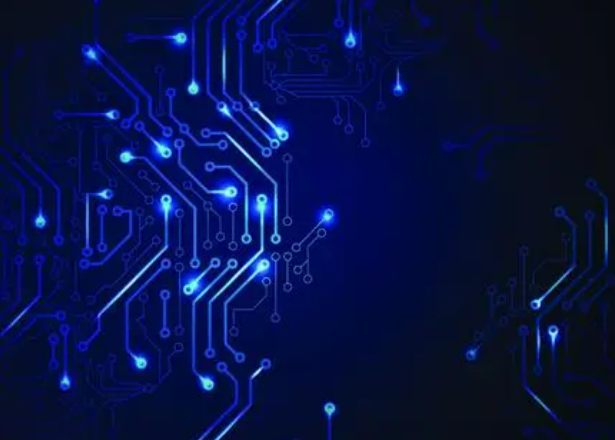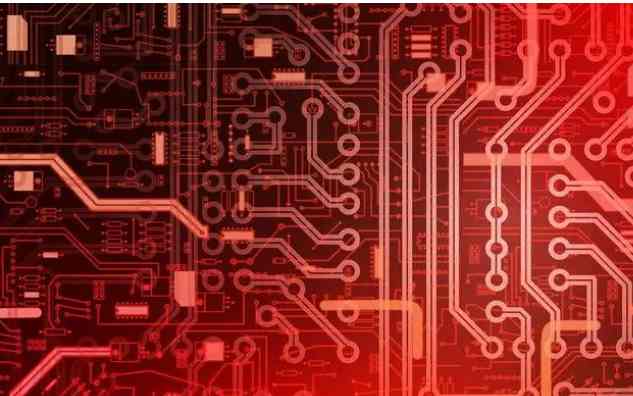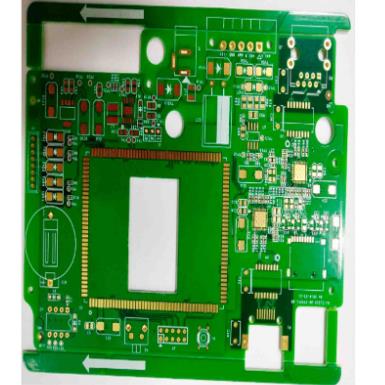
Special Points in HF Board Production and Problems Needing Attention in Production
Circuit board manufacturing, circuit board design and PCBA processing manufacturers will explain to you what special areas are in the production of high-frequency boards and what problems should be paid attention to in the production
High frequency board involves high frequency materials. High frequency board is generally a multilayer circuit board. Compared with ordinary boards, the process requirements are higher. Let's share the special features of high frequency board production. What are the special features of high-frequency board production
High frequency board impedance control requirements are relatively strict, relative to the line width control is very strict, the general tolerance is about 2%.
1. Do not grind the PCB before soldering, otherwise the adhesion will be very poor, and only use micro etching solution for roughening.
2. High frequency board is a special circuit board with high electromagnetic frequency. Generally speaking, high frequency can be defined as the frequency above 1GHz.
3. Most high-frequency plates are made of polytetrafluoroethylene. There will be many rough edges when they are formed with ordinary milling cutter, so special milling cutter is required.
4. Due to the special characteristics of high-frequency boards and plates, the adhesion of PTH copper deposition is not high. It is usually necessary to roughen the vias and surfaces with the help of plasma treatment equipment to increase the adhesion of PTH hole copper and solder resist ink.
5. Its physical performance, accuracy and technical parameters are required to be very high, and are often used in automotive anti-collision systems, satellite systems, radio systems and other fields.
What problems should be paid attention to in the production of high-frequency boards
As we all know, high-frequency boards are high-frequency circuit boards used in the high-frequency field. High frequency requires the dielectric value of the circuit, with low dielectric coefficient and strong stability. What aspects should we pay attention to in the design of high-frequency boards?

1、 Can a matching resistance be added between differential line pairs at the receiving end when designing the high frequency board?
The matching resistance between differential line pairs at the receiving end is usually added, and its value should be equal to the value of differential impedance. This will improve the signal quality.
2、 For the clock signal line with only one output terminal, how to realize the difference distribution line?
It is meaningful to use differential distribution lines only if both the signal source and the receiver are differential signals. Therefore, the difference distribution line cannot be used for the clock signal with only one output terminal.
3、 How to avoid high frequency interference when designing high frequency board?
The basic idea to avoid high-frequency interference is to minimize the interference of high-frequency signal electromagnetic field, which is called crosstalk. You can increase the distance between high-speed signal and analog signal, or add groundguard/shuttraces beside the analog signal. Attention shall also be paid to the noise interference of digital ground to analog ground.
4、 How to solve the problem of signal integrity in the design of high-speed high-frequency board?
Signal integrity is basically a problem of impedance matching. The factors that affect impedance matching include signal source architecture and output impedance, characteristic impedance of routing, characteristics of load end, topology architecture of routing, etc. The solution is to terminate and adjust the topology of routing.
5、 How is the difference distribution line realized?
Two points should be noted in the wiring of differential pairs. One is that the length of the two lines should be the same as far as possible, and the other is that the distance between the two lines (which is determined by the differential impedance) should always remain unchanged, that is, they should remain parallel. There are two parallel ways. One is that two lines walk on the same side by side, and the other is that two lines walk on the upper and lower adjacent layers. General former
There are many side by side implementations.
6、 How to select PCB high-frequency board in high-frequency board design?
The selection of PCB high-frequency board must balance the design requirements with mass production and cost. The design requirements include electrical and mechanical parts. This material problem is usually important when designing very high-speed PCB high-frequency boards (frequencies greater than GHz). For example, the commonly used FR-4 fiberglass board material has dielectric loss at several GHz frequencies
Loss) will have a great impact on signal attenuation, which may not be applicable. As far as electricity is concerned, pay attention to whether the dielectric constant and dielectric loss are applicable at the designed frequency.
7、 Why should the wiring of differential pairs be close and parallel?
The wiring of differential pairs should be properly close and parallel. The so-called appropriate approach is because this distance will affect the value of differential impedance, which is an important parameter for designing differential pairs. The need for parallelism is also due to the need to maintain the consistency of differential impedance. If the two lines are either far or near, the differential impedance will be inconsistent, which will affect the signal integrity
(signality) and time delay.
8、 How to deal with some theoretical conflicts in the actual routing of high-frequency boards
1. Basically, it is right to divide and isolate the analog/digital signal. It should be noted that the signal wiring should not cross the moat, and the return current path of the power supply and signal should not become too large.
2. It is true that there are many conflicts between high-speed cabling and EMI requirements. However, the basic principle is that some electrical characteristics of the signal cannot meet the specification due to the resistance capacitance or ferritehead added by EMI. Therefore, it is better to solve or reduce the EMI problem by using the techniques of arranging wiring and stacking high frequency PCB boards, such as high-speed signal going to the inner layer. Finally, use resistance capacitor or ferrite
Bead to reduce the damage to signals.
3. The crystal oscillator is an analog positive feedback oscillation circuit. In order to have a stable oscillation signal, it must meet the specifications of loopgain and phase. The oscillation specifications of this analog signal are very easy to be interfered. Even adding groundguard traces may not completely isolate the interference. Moreover, if it is too far away, the noise on the ground plane will also affect the positive feedback oscillation circuit. So, we must
Keep the crystal oscillator close to the chip.
These are the eight aspects that should be paid attention to in the design of high-frequency boards. I believe that you, as a designer or engineer, should have a deeper understanding of high-frequency boards. Circuit board manufacturers, circuit board designers and PCBA manufacturers will explain to you what special areas are involved in the production of high-frequency boards and what problems should be paid attention to in the production.


